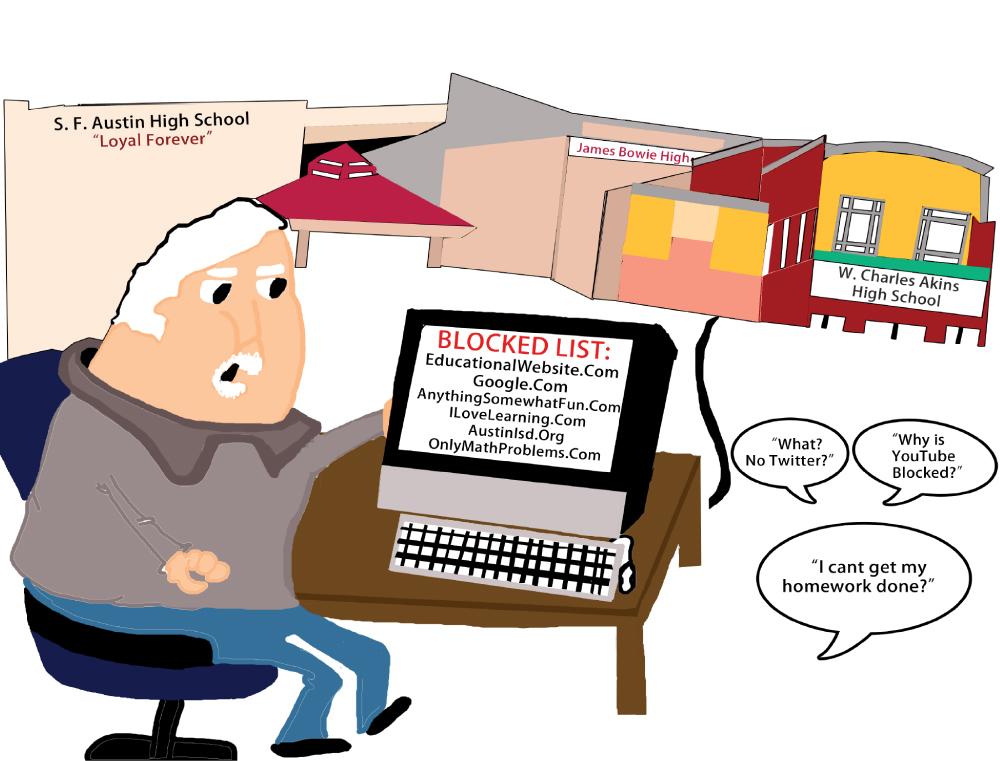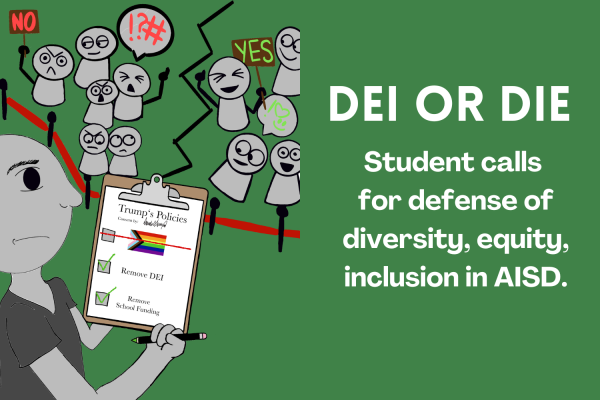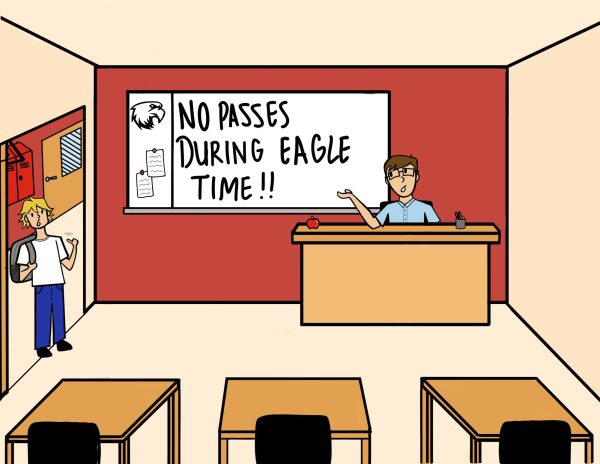A.I.S.D restricts resources within schools
A recent common experience for students follows this pattern: A student pulls up a website that their teacher assigned homework on, and a big red screen pops up. The site is blocked and now they can’t do their homework.
We as a staff believe that it is okay to block sites, to a limit.
It’s easy to understand that in order to receive federal funding for Internet and telecommunication services the A.I.S.D Department of information systems and technology must block certain websites that may show things that hold any kind of inappropriate content.
What we disagree with is the fact that they have overstepped their mandate by censoring useful sites like YouTube and Twitter.
There are many sites that are blocked, that have no obscene or explicit content at all.
The school principals have pushed hard to get sites like YouTube open for educational purposes.
Teachers put up tutorials
on YouTube to help students with notes for an assignment. Science videos, history lectures, math tutorials and so much more are now unavailable because district filters blocked it.
We think that the school and students within can benefit from certain websites that they are blocking.
Teachers use the Internet to post assignments and extra help for students who need it. Our advisers have tried so hard to switch to “flipped work”, or online homework.
Many students don’t have Internet access outside of school and the library computers are the only resource they have.
This is one of the reasons why we need access to websites at school. Not everyone is fortunate enough to have a laptop or computer at home.
We believe that our generation is more technology based, and putting tutorials and school information on sites like Twitter, Facebook and YouTube helps us really absorb in what they are trying to teach us.
There have been studies that show that we have very short attention spans. Adapting to how we best learn is a responsibility of educators that needs support from the information technology office.
We think that blocking so many websites takes away many opportunities that can only benefit us.
Journalism programs and computer classes depend on websites to help promote photography or an online newspaper.
Taking away these sites is basically taking away these programs, too.
A.I.S.D has nothing to loose by unblocking appropriate websites, and schools will not loose their funding, there is no reason for extreme measures.
We do think that some students also take advantage of the privileges of Internet use at school, but now we don’t even have access to sites we do need.
By unblocking some websites that are school appropriate, class time won’t be wasted trying to pull up lesson plans that are not available, and students will have more time to learn.
Your donation will support the student journalists of Akins High School. Your contribution will allow us to purchase equipment and cover our annual website hosting costs.

Grade: 12
Academy: AHA
Year on Staff: 3
Title: Editor-In-Chief
Why they are on staff? I am on staff because I love to write.
What do you do for fun? I love to read
Plans for after high school? I plan on going to college after high school








